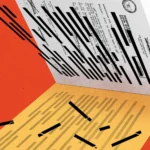Teaching Chapters on Democracy
A recent controversy over the fact that government-run schools in India are no longer teaching chapters on democracy rights, secularism, federalism, and citizenship, among other topics. These teaching chapters on democracy concepts that supposedly lie at the core of the Indian Constitution. Now seem to come into conflict with the Hindu-majoritarian ideology of the ruling right-wing Bharatiya Janata Party (BJP).
The party’s well-established interest in using the education system to spread its own unitary brand of Indian identity has further raised concerns that the omissions are politically motivated.
BJP\’s Controversial brand of Nationalism
After a victory in last year’s general elections, Prime Minister Narendra Modi’s BJP began rolling out a set of controversial citizenship policies that critics have called unconstitutional and anti-Muslim and that have been condemned for promoting an ethnoreligious idea of India.
The country has since witnessed a series of large-scale national protests against the measures, including the Citizenship Amendment Act—a law designed to aid refugees from neighboring countries but which excludes Muslims—and a new National Register of Citizens. When combined, the two measures could end up disenfranchising large numbers of India’s Muslim population.
Removed material
When chapters like “Popular Struggles and Movements” and “Democracy and Diversity” were removed from the Class 10 political science syllabus, stakeholders and opposition groups were quick to frame the cuts as being in line with the other steps for which Modi has been criticized.
The move advances the vision of an “exclusivist, theocratic, intolerant, fascistic nation,” Sitaram Yechury, the leader of the Communist Party of India (Marxist), wrote on Facebook in July. His party later called for the cuts to be rescinded, saying they hurt “secular democratic India’s future.”
A politically motivated decision?
The Education Ministry denies any political motives behind the move. For practitioners, though, it is hard to separate the syllabus cuts from the current political climate. “It’s clear that this was a very selective exercise,” Anita Rampal, a professor and former dean of the education department at Delhi University, told me in July. “The deleted chapters relate to policies currently in the public sphere. That’s important because not many issues usually are. These are topics the government finds inconvenient.”
Stifling democratic movements
Adding weight to such interpretations are other activities the government has undertaken during the pandemic. According to Human Rights Watch, New Delhi has stifled dissent and arrested protesters. The government has also come under fire for refusing to release academics and social activists from jail, including the 80-year-old poet Varavara Rao, who was kept in cramped prison conditions on charges of inciting caste-based violence under India’s draconian Unlawful Activities Act. He ended up contracting the coronavirus.
Congress\’s role
Meanwhile, requests from opposition leaders to resume parliament or allow for videoconferencing have fallen on deaf ears. In turn, the Indian National Congress, the main opposition party, has accused the government of trying to avoid parliamentary scrutiny. Add to this a distracting mainstream media with little interest in covering education policy minutiae and educators like Rampal have little to be hopeful about. “It’s a populist move that few people have the time or inclination to question,” she said. “Once deleted, I can’t see these chapters coming back in any meaningful way.”
Ministry of Education
The Education Ministry maintains that the recent move is in students’ best interests. Before the pandemic, too, ministry officials spoke about the need to “rationalize” the syllabus and unburden students from the long slog. But if that is the goal, the cuts have undermined it.
In an op-ed, Krishna Kumar, a former director of the National Council of Education Research and Training. The organization responsible for designing the curriculum argued that the cuts have left some remaining topics “incomprehensible.” He points out that students will now learn about the constitution without learning about India’s federal structure.
Central Board of Secondary Education
The CBSE has said teachers can still teach these topics if they wish. But that is unlikely to happen. “Teachers are evaluated on how well their students score in the board exams. “When you’re already under so much pressure, there’s no incentive to be creative. Or to deviate from the highly centralized teaching calendar.” This system has bred a culture of survival. It has removed any space for teachers to “really think and talk about educating children’s minds,” the teacher said. “It’s why so many great teachers have left.”
Details of edited content
The deleted chapters dealt with uncomfortable periods of Indian history. Like the partition of the subcontinent in 1947 and lower-caste struggles for emancipation. The chapter on popular movements, for example. Drew a strong parallel between the assertion of Dalit rights and the civil rights movement in 1960s America. Jairam said “I taught this chapter, so I know how effective it was. It encouraged students to reflect on how privilege still operates in society. As well as on their own privilege, which may have sheltered them from these uncomfortable truths.”
BJP does what it wants
In that way, there is a feeling among some political observers that the BJP has left its most divisive policies for its second term in power. With the Supreme Court’s independence under question, a brutal crackdown on dissenting voices from academic and civil society, and a feeble opposition, the path has been cleared for the government to pursue its most controversial objectives, starting with the revocation of Kashmir’s special status a year ago and leading, most recently, to reconfiguring textbooks.
Your trusted source for insightful journalism. Stay informed with our compelling coverage of global affairs, business, technology, and more.



Add a Comment